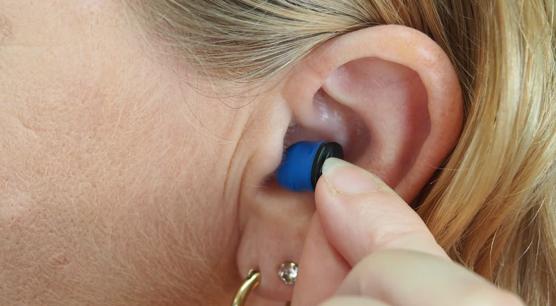Do you find repetitive sounds such as pen clicking, feet tapping, and the clock ticking difficult to tolerate? If yes, then you may be suffering from misophonia. Another similar sound disorder is tinnitus, which causes ringing sensations in the ears. Let’s learn more about misophonia and sound disorders.

(Source)
What is Misophonia and Sound Disorders?
Sniffing, chewing, and scratching are some sounds that trigger extreme emotions in people with misophonia. These sounds can be frustrating and annoying for anyone. That said, misophonia patients can’t control their emotions when they hear such sounds and tend to lash out. They have selective sound sensitivity syndrome, which makes these sounds unbearable for them.
Symptoms of Misophonia & Sound Disorders
You can easily identify a person with misophonia through various symptoms. Whenever they hear triggering sounds, they show a strong negative reaction to stop that sound. Their reaction might include different emotions, feelings, and physical sensations. Here are some symptoms of misophonia:
- Sense of panic or anxiety, which is hard to control
- Feeling of disgust, irritation, annoyance
- Pressure or tightness in the chest or the body
- Increased temperature, blood pressure, and heart rate
- Feelings of aggression, rage, and anger
- Development of fight and flight situation
Misophonia patients experience these symptoms when they are teens or around puberty. Once they develop the condition, it stays with them throughout their life. If you have misophonia, you will experience harsh responses to certain sounds. People with this condition struggle to control their reactions and reduce the intensity of their anger.
If you have a hard time dealing with the sound, you should consult a professional doctor. The doctor will identify your triggers and identify an effective treatment for your condition.
Common Triggers for Misophonia and Sound Disorders
Various people suffering from misophonia experience different triggers. The common trigger for this condition is chewing sound. Many statistics suggest that oral sounds are common triggers for misophonia. Here are some common triggers for misophonia:
- Lip-smacking
- Swallowing
- Crunching or chomping
- Throat clearing
- Loud breathing
- Slurping
Causes of Misophonia and Sound Disorders
According to various studies, misophonia can a symptom of an underlying condition. These conditions are:
- Anxiety disorder
- Obsessive-compulsive disorder
- Tinnitus
- Tourette syndrome
- ADHD
Treatment Options for Misophonia & Sound Disorders
Misophonia doesn’t have a proper treatment procedure, but you can manage your symptoms. Here are some ways to manage misophonia and sound disorders:
1. Tinnitus Retraining Therapy
Tinnitus retraining therapy helps with tinnitus and other sound disorders as well. With the help of this technique, you can reduce the intensity of triggering sounds.
2. Counter Conditioning
In this treatment, the doctor will blend the weaker sound with your favorite song or sound. According to a 2015 case study, a woman suffering from misophonia uses this technique to reduce sound trigger response.

(Source)
3. Coping Strategies
There are many coping devices and techniques you can use to reduce the effect of the triggers. Here are some techniques:
- Listen to calming and relaxing music
- Use noise-canceling headset
- Listen to white noise
- Politely talk with the person making the noise
4. Counseling
You can consult a doctor to help you with misophonia. The doctor will identify the actual cause of the condition. Also, they will determine your triggers and recommend effective techniques. For instance, cognitive behavioral therapy to navigate physical sensations and emotions caused by irritating sounds.
Misophonia & Sound Disorders: Conclusion
Do you want to visit a doctor to help you with misophonia? If yes, then you should contact the Misophonia Cognitive Center™ in NYC. Our specialist Stephen Geller Katz has over 20 years of expeerience treating and curing people with sound disorders.
Misophonia Cognitive Center™
19 West 34th Street
Penthouse Floor
New York, NY 10001
646-585-2251
Tele-Video Sessions
Speak 5 languages
International Patients Welcome
